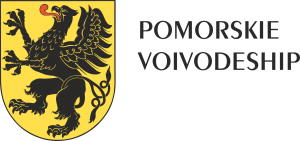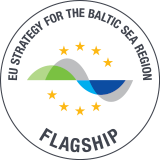As our “Game of Cities: Culture, Participation, Democracy” urban cultural planning conference approaches very fast, let us introduce you with the speakers, workshop leaders, and experts, who will participate during the event! The conference will be divided in 4 blocks with multiple keynotes and 14 breakout sessions, and here are the people in charge!
KEYNOTES
Block 1: “How do inclusive models for participation offer novel ways to engage citizens in their communities?”
Christelle Lahoud
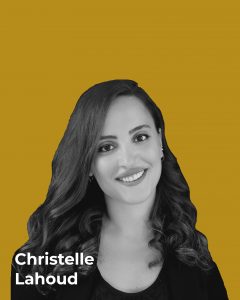
Christelle is a programme management officer working in the Headquarters of UN-Habitat in Nairobi, Kenya and managing the Block by Block programme within the Global Public Space Programme. She’s an architect by profession with focus on emergency architecture and planning. Christelle’ s work within the agency focuses on innovation and inclusion of vulnerable groups in co-designing and planning processes.
Marcin Gerwin
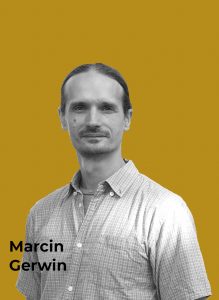
Marcin is a PhD and specialist in deliberative democracy and sustainability from Poland. He designs and coordinates citizens’ assemblies. Marcin is managing the Center for Climate Assemblies. He is the author of “Citizens’ Assemblies: Guide to Democracy that Works”.
Block 2: “Local Cultural DNA Mapping: A Tactic For Co-Creating Sustainable Communities”.
Lia Ghilardi
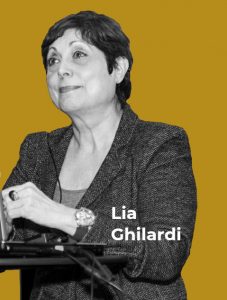
Lia is internationally recognized as a leader in the delivery of sustainable, culture-based regeneration plans and visitor’s strategies in contexts ranging from large cities to smaller rural areas. She works mostly with civic leaders, networks, societies, housing developers and cultural organizations to provide creative and integrated solutions to the challenges of making places more cohesive, equitable and liveable for everyone.
In the UK, Lia has served for three years as member of the Mayor of London’s Advisory Group on Culture and Development. She is a member of the Academy of Urbanism, a network of influential thinkers, professionals and decision makers passionate about a better living for people in towns and cities. Lia is also a Fellow of the Royal Society of Arts, a research organization, which encourages the development of a principled, prosperous society and the release of human potential and creativity.
www.liaghilardi.com
Block 3: “Storytelling with new technologies”.
Rebecca Rouse
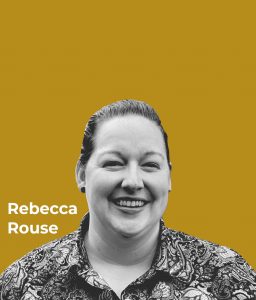
Rebecca works with community partners to create collaborative work with students and community members in digital cultural heritage and co-created placemaking. She also researches the theoretical and historical aspects of emerging technologies, and develops work across museums, cultural heritage sites, public space, interactive installations, moveable books, and theatrical performance. All of Rebecca’s work comes together around investigating and inventing new modes of storytelling with a focus on arts and playful cultural interactions and engagement. For more information visit www.rebeccarouse.com.
Block 4: “Direct participation through gamification”.
Mattia Thibault
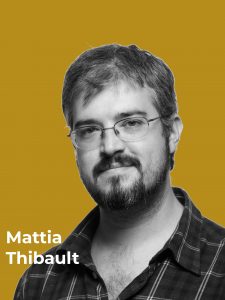
Mattia is a Postdoctoral Researcher at Tampere University and member of the Gamification Group. He is currently working on the EU-funded project “ReClaim – Urban Gamification for City Reappropriations” (MSCA-IF 793835). Mattia earned a PhD in Semiotics and Media at Turin University in 2017. He has been enrolled in SEMKNOW, has been visiting researcher at Tartu University (Estonia), The Strong Museum of Play (Rochester, NY, US), Helsinki University (Finland), and Amsterdam University of Applied Sciences and Waag (the Netherlands). Mattia’s research has been published in reputable venues such as Sign Systems Studies, Lexia, and the International Journal for the Semiotics of Law.
BREAKOUT SESSIONS
Block 1/Breakout 1: “Is Active Citizenship Prerequisite for Sustainable and Inclusive Development? A Baltic City Perspective?”
Paulina Szewczyk
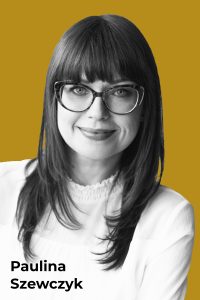
Paulina is the deputy director at City of Gdynia, City Planning Office, chairwoman of the Union of Baltic Cities, Planning Cities Commission, and the member of the Commission’s Steering Group. She studied Architecture and Urban Planning at Faculty of Architecture at Gdansk University of Technology, Poland where Paulina was also giving lectures and organizing urban planning seminars for students; her doctoral thesis is titled ”Continuity of public space within buildings; new places in-between building and the city space”. Paulina is an author and co-author of more than 25 local spatial development plans and the study of conditions and directions of spatial development of Gdynia.
Rūta Stepanovaitė
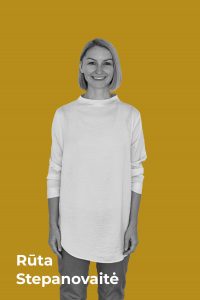
Rūta is a cultural manager and arts administrator focused on change and knowledge
management, based in Kaunas, Lithuania. She’s the current director of Kaunas Artists‘ House and Chair
of the Union of the Baltic Cities Cultural Cities Commission, member of the board of Lithuanian
Association of Cultural Managers. Rūta is also the manager of various cultural micro initiatives and projects, as well as an active member of national and international expert groups.
Dorota Kamrowska-Zaluska
Dorota is a PhD, MArch, MSc, Eng, Assistant Professor and Director of mid-career program on Urban development and management of metropolitan areas at the Department of Urban Design and Regional Planning at Faculty of Architecture, Gdansk University of Technology. She’ s also a visiting Scholar and Research Fellow at several research institutions incl. Massachusetts Institute of Technology (2013), Charted Urban Planner with 16 year experience working both for public and public sector, but also taking part in various participatory research and user-oriented design projects.
Her research interests are – territorial impact of EU Cohesion Policy, social innovation in urban regeneration, smart cities and development of metropolitan areas; author of more than thirty papers and a book on sustainable urban regeneration – describing role of EU Cohesion Policy and its role in urban regeneration, based on comparing Polish, French and German systems; Board member of Association of Polish City Planners, President of Gdansk Division, and ISOCARP Member.
Block 1/Breakout 2: “How do you Create a Participation Model for your context and your city?”
Johanna Seppälä
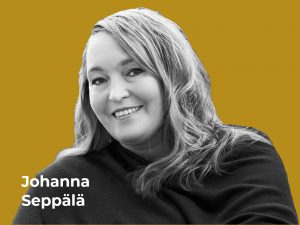
Johanna heads the department of Participation and Citizen Information in Helsinki. It coordinates participation, produces participatory methods for employees, and prepares matters related to participation for the Mayor and the City Board. The Unit has initiated a model for regional participation, in order to strengthen the possibilities of equal participation in Helsinki.
Magdalena Skiba
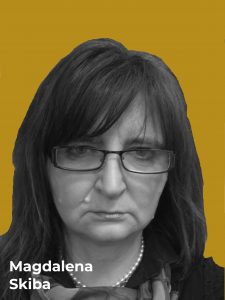
Magdalena serves the position of the head of the Unit for Local Cooperation and Social Innovation in the Social Development Department of the City Hall of Gdansk. In her work, besides ordinary administrative tasks, Magdalena coordinates the cooperation between the City, civil society organization, and transnational projects in the framework of the Urbact program (such as BoostINNO or Civic eState). She is also an expert in social inclusion, for many years Magdalena had been a president of the European Movement for Diversity and understanding “Caravane 2000”.
Block 1/Breakout 3: “What can we Learn from Different Models of Participatory Budgeting?”
Malgorzata Madej
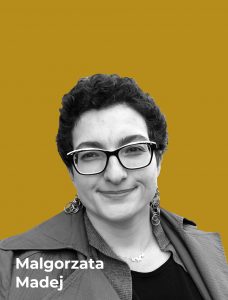
Małgorzata is a Ph.D., researcher, and lecturer at the Institute of Political Science of the University of Wrocław. She’s the author and co-author of three books, as well as articles in scientific journals and chapters in books. Main areas of scientific interests: local governance, decentralization, political and social participation. Malgorzata is also a translator and author.
Ewa Stokłuska
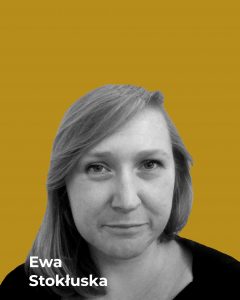
Ewa is a sociologist, trainer, and facilitator with over 8 years of experience in the area of public participation (both NGO-based expert and local government official in the city of Gdynia and the city of Warsaw). She’s a former co-chair of the Participatory Budgeting Council in Warsaw and a former member of the Participatory Budgeting Council in Gdynia. Currently Ewa works as Deputy Director of the Social Communication Office in the city of Warsaw and is responsible for community engagement and equal treatment.
Block 2/Breakout 1: “How can we revitalize the community perspective through arts and culture?”
Aleksandra Szymanska
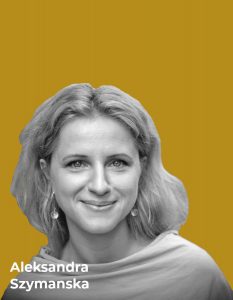
Aleksandra is a cultural manager, cultural policies expert, and director of the self-governing Instytut Kultury Miejskiej (City Culture Institute) based in Gdansk since March 2011. She is the co-author of the cultural strategy of the City of Gdańsk but also projects related to the city development through culture. That includes Coal Market Square, City and emotions, Gdansk 2020, Narrations Festival, cycles of lectures and debates that raise the knowledge of the city development and the role of culture in it.
Magdalena Rembeza
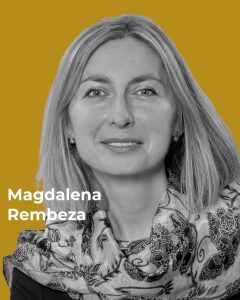
Magdalena is an assistant professor at the Department of Urban Design and Regional Planning at the Faculty of Architecture of the Gdańsk University of Technology. She is also a member of the Board of the Revitalization Forum, the Society of Polish Town Planners (TUP), and the International Federation of Housing and Planning (IFHP). In 2009-2014, she was the head of postgraduate studies at the Gdańsk University of Technology: “Architectural and urban revitalization of urban areas”.
Magdalena gained professional experience in Poland, England, Germany and the United States. She is also a scholarship holder of the Kościuszko Foundation in 2014. In 2014-15, she completed a one-year internship at the Massachusetts Institute of Technology (MIT) in the USA, as part of the Special Program for Urban and Regional Studies – SPURS. Her research focuses on the broadly understood revitalization of the city and its public space, also with the use of art as a tool for urban revitalization.
Block 2/Breakout 2: “How to create sustainable frameworks in local authorities for cultural planning? & How to reenable neighbourhoods within economic and social challenges in the Baltic Sea Region?”
Mathias Holmberg
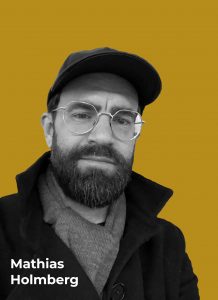
Mathias is a board member of the Swedish association for Cultural Planning. Promoting social and cultural perspectives on planning and development to build capacity for liveable cities and sharing, as well as caring, communities.
Jaana Simula
Jaana is an art historian and communications professional who, when growing up, became a cultural expert. The intermediate stages are the Wäinö Aaltonen Museum, the communications agency Mimes, the Theatre Academy of Finland and years 2009 -2018 when she worked as the cultural director of City of Pori. From 2011 to 2018, Jaana has been involved in the activities of the Union of the Baltic Cities and in 2015-2017 as the Chairperson of its Cultural Cities Commission. Jaana is one of the founding members of the Cultural Planning Finland (2018) and since 2019 the chairperson of the association.
Currently Jaana is working at Globe Art Point, an association advocating for cultural equity, diversity and inclusion in the arts and cultural sector in Finland. G.A.P’s focus is on foreign-born artists and cultural workers, living and working in Finland, being acknowledged and their untapped potential fully utilized.
Block 2/Breakout 3: “How to enable implementation of Cultural Planning? – CP policy roadmap workshop.”
Hanna Obracht-Prondzyńska
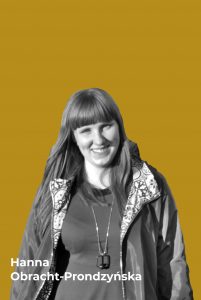
Hanna is a PhD., M.Arch. Eng., assistant professor at the Gdansk University of Technology, Faculty of Architecture, Department of Urban Design and Regional Planning. She is an architect and urban planner with an experience gained by working on urban projects in U.S., China, South Africa, Romania etc. Recently Hanna worked on the development plan for the Pomeranian region and the metropolitan area of Gdansk-Gdynia-Sopot. Her research work focuses on data driven design and urban data analytics to introduce tools for shaping and implementing urban policies. Hanna is the cofounder of GUT Urban Data Lab as well as board member of the Polish Society of Town Planners and member of the International Society for City and Regional Planners.
Krzysztof Stachura
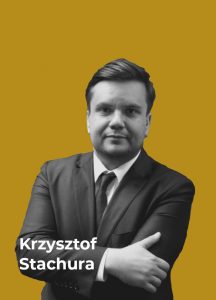
Krzysztof is a PhD, sociologist, and assistant Professor at the University of Gdańsk. His main research interest is anthropology of new technologies and cultural sociology. Krzysztof is a member of Polish Sociological Association. He participated in scientific trainings at universities in Germany, USA, Belgium, and Greece.
Block 2/Breakout 4: “How can urban civic activism empower citizens?”
Pasi Mäenpää

Pasi is adjunct professor and university researcher at the University of Helsinki. His work has dealt with urban consumption, mobile technologies, local services, sharing economy, and the emerging 4th sector within the framework of public space as commons.
Block 3/Breakout 1: “Do it yourself democracy – Urbanism and Social Change.”
Līva Kreislere
Līva is an architect and urbanist based in Riga. Since receiving an MA in architecture with urbanism and societal change in Copenhagen in 2016, she runs a multi-disciplinary practice, working as an architect for culture and is interested in architect’s role in cultural processes of the city. Various projects include architecture for Riga International Biennial of Contemporary Art (RIBOCA1), design work with Latvian Centre of Contemporary Art, Danish Cultural Institute. Liva has been working as a curator, developer with NGO Free Riga, developing a creative quarter in Riga (Tallinas Street creative quarter). Liva deliberately works with XS and XL scales, and since 2017 has been working on UrbCultural planning project, testing the method of cultural planning and cultural mapping.
Block 3/Breakout 2: “How to work with placemaking and engaging citizens?”
Katarzyna Iwińska
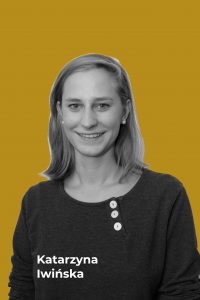
Katarzyna is currently working for a small company, Utila, which mostly deals with programming local and regional development in Warsaw and Poland. She was previously, engaged in a small foundation, Fundacja na Rzecz Wspólnot Lokalnych Na Miejscu, focusing on social participation in spatial development. Katarzyna’s major field of interest is discovering the ways of effective engagement of different users into planning processes. Her goal for the future is to contribute to the improvement of the quality of public spaces in cities, which make our lives so much more enjoyable
Block 3/Breakout 3: “How to foster social inclusion through arts (presentation and workshop)?”
Niels Righoldt
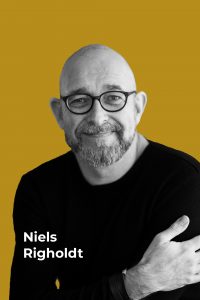
Niels is a culture advisor, process facilitator, speaker, trainer, and cultural management consultant. As the director of The Danish Centre for Arts & Interculture, he is leading a team promoting cultural democracy and a culturally diverse environment within the arts and culture scene (focus being on the development of adequate and innovative audience strategies, participation formats, co-creation methods and intercultural awareness). Niels is a.o. vice-president of Culture Action Europe in Brussels, chairman of the board of CummunityKulturCentrum in Malmö, and a board member of Voksenåsen in Oslo, Teatergrad in Copenhagen and Next Door Project in Copenhagen.
Block 3/Breakout 4: “How to ensure that public art contributes to shared public life?”
Aleksandra Grzonkowska
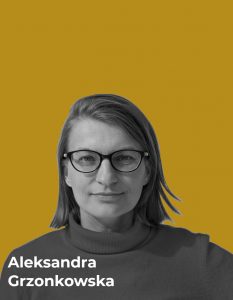
Aleksandra is an art historian, curator, researcher. She’s the president of the Chmura Visual Culture Foundation and responsible for its artistic and research program. Aleksandra is a curator and coordinator of numerous individual projects, as well as collective exhibitions of Polish and foreign artists (Show me your hands, Marta Romankiv & Łukasz Surowiec, Nuremberg 2020; more than the sum of its parts, Florian Tuercke, Kraków 2019; The Baltic House Lab, Tina B, 736 km).
From 2004–2014 she cooperated with the Wyspa Progress Foundation / Wyspa Art Institute, the Artloop Festival in Sopot (2013–2014) and the Emigration Museum in Gdynia (as: specialist in cultural projects). Aleksandra is the editor of the catalogue ‘Augustus. F. Sherman. Atlas of migrant “(2017), Bogna Burska’s individual catalog” Movies “and co-editor of the Alternativa. She received the Individual Scholarship of the Ministry of Culture in the Kultura w Sieci program (2020), the Cultural Scholarship of the Marshal of the Pomeranian Voivodeship (2013) and a scholarship of the City of Gdańsk for Creators of Culture (2007).
Joanna Zawieja
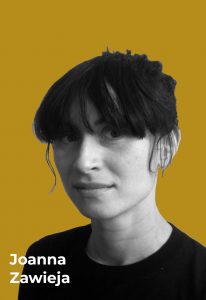
Joanna is an architect, critic, and curator. She works in-between art, architecture, and urban planning. In her own architectural practice, Joanna has carried out several exploratory construction projects like the reconstruction of the legendary music venue Fylkingen or the new library at the Goethe Institute in Stockholm. Since 2014, she works for the Public Art Agency Sweden (PAAS), where responsible for projects related to urban development.
At PAAS, Joanna has curated numerous public art projects, several of them in close collaboration with local civil society. Since 2018, she is writing architectural criticism for Arkitektur, the main architectural journal in Sweden. Zawieja holds a Master of Architecture from KTH, Stockholm, and has studied Diploma Architecture at UCL, London.
Anna Fedas
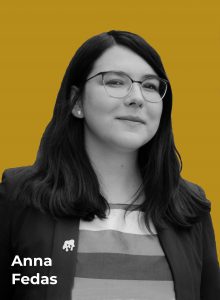
Anna is a manager, trainer, facilitator, researcher, and human rights activist. She currently works as a bilateral and regional cooperation coordinator in the Stefan Batory Foundation (Active Citizens Fund – National in Poland) supporting civil society organizations to find their counterparts from abroad and establish their international partnerships.
Anna’s previous experience includes working for both civic society organizations and initiatives (i.a. Social Project 2012) and public institutions (i.a. PL.2012, European Solidarity Centre, Metropolitan Area of Gdańsk-Gdynia-Sopot) on Polish and international projects in the field of social inclusion, civic society development and capacity building of local communities, civic awareness, human rights, equal treatment, and multicultural dialogue.
Block 4/ Breakout 2: “How do we work with Community Partners in Arts/Gaming Projects Focused on Local Culture(s)?”
Diana Gerlach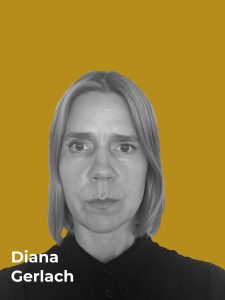
Diana is a MA in modern art and culture, and cultural communication. She works as a cultural consultant in Guldborgsund Municipality, Denmark and as project manager of regional strategic collaborations between cultural institutions and schools. Diana has many years of experience with children and youth culture and art communication from municipalities and art museums. She has focused on art and culture with children, youth and ‘non-users’ as target group, especially in collaborations between cultural institutions, artists, schools, kindergardens and language schools. In her work, Diana focuses on co-creation, citizenship and an intercultural and social inclusive perspective. She is also organizing the annual “Dannelseskonference” in Guldborgsund.
Maria Saridaki
Maria is a play studies researcher at the University of Athens. Her PhD is on playful interactions, pervasive games, and applied gaming for students with and without intellectual disabilities. Maria also has a postdoc in digital storytelling. Since 2007 she has been working on playfulness and temporary playful zones with various wonderful people in different cities around the globe, building festivals, projects, games, workshops, schools and communities.
Maria is currently the artistic director of Trust in Play: European School of Urban Game Design, a Creative Europe project and in the past one of the co-founders of Athens Plaython, building a three years urban games festival around a vibrant inclusive community of game designers.
Karolina Cisło
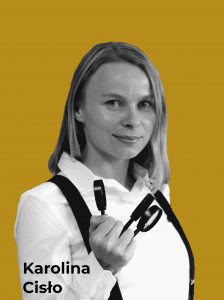
Karolina is an educator in the field of gamification in education and game based learning. She has gained experience in applying modern educational methods while working in interactive science centers for education in Gdańsk and Gdynia, Poland. Karolina conducts workshops in the form of escape rooms with school students and teachers. She is the author of a blog Gry w edukacji (Games in Education), creator of gamified lesson scenarios, stationary and digital escape rooms and materials for teachers on gamification. In “Game of Gdansk” project, Karolina is responsible for the part connected to developing the game plot.
Sandra Konstante
Sandra is a graphic designer, artist, art teacher. She’s the project manager and computer graphics teacher at Bolderaja School of Music and Art. She has a master’s degree in design and a bachelor’s degree in arts pedagogy. For more than 30 years, Sandra worked in art and design education at Valmiera Art High School, Latvian College of Culture, Vidzeme University College.
She has managed education and mobility projects in Nordplus Junior, Comenius, Leonardo da Vinci and SCCF programs, as well as courses and seminars in Computer Graphics, Language of Art, Promoting Creativity, Design Thinking. From 1979 Sandra has participated in art exhibitions: solo exhibitions in art galleries at Latvia and group exhibitions at Latvia, Estonia, Germany, Sweden.
Anna Neugebauer
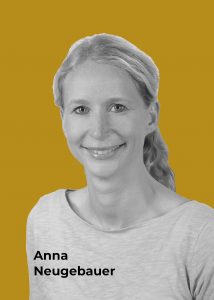
Anna is a geographer and a city and regional manager, and works since 2012 in the offices for district development in Gaarden (Kiel). She carries out the citizen participation within the urban development program “Social City” for both children and adolescents. Anna’s last two children and youth participatory projects were about schoolyard redesigning and the future design of a public outdoor swimming pool. For this, she completed further education in children and youth participation. In the Urban Cultural Planning Project, Anna is responsible for the Minecraft gamification sub-project in Kiel.
Magdalena Zakrzewska-Duda
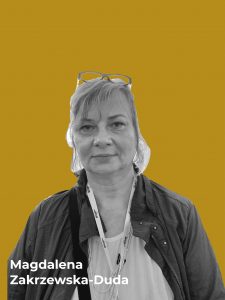
Magdalena is a cultural operator. Her professional activities and interests are focused on „art for social change” and “art for sustainable development”. She is the senior specialist on Strategic Partnerships at the Baltic Sea Cultural Centre (BSCC) in Gdansk, Poland. Magdalena has also been a leader or co-leader of many international and local art, education and revitalization projects (such as Baltic House LAB 2015 – City closer to Water; ARTmosphere, 2016; Shared History, 2016-2018., Memory of Water, since 2018). Coordinator of UrbCulturalPlanning on behalf of BSCC, supervising, among others, the tasks of Policy Road Map development and local gamification programme incl. “Game of Gdansk”.
REGISTRATION:
The official registration is closed. If you would still want to join the Conference, please send email with your name, organization, and email to urbcultural@pomorskie.eu address. The links will be sent to you (prepare for some waiting time).
PROGRAMME:
Here you can download the prelimenary Programme of the conference (as on 13.11.2020)!
FOR MORE INFORMATION – CONTACT:
Krystyna Wróblewska: k.wroblewska[@]pomorskie.eu
The program contributes to the policy development of the EU Baltic Sea Region Interreg project “Cultural planning as a method for urban social innovation”. The event is hosted by Pomorskie Voivodeship.
